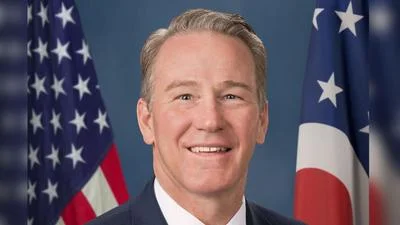Dean Rieck, Executive Director at Buckeye Firearms Association | LinkedIn
Dean Rieck, Executive Director at Buckeye Firearms Association | LinkedIn
Big banks are reassessing their policies concerning the firearms industry, as noted by The Wall Street Journal. The National Shooting Sports Foundation (NSSF) has prioritized addressing financial discrimination against this $93 billion-a-year industry in a challenging battle against the banking sector's $23.6 trillion assets and $260 billion net income.
The Wall Street Journal reports, "Big banks are trying to get out of the crosshairs of Republican states that are cracking down on companies for 'woke' policies that conservative policymakers say are illegal and discriminatory." Meetings involving major banks such as JPMorgan Chase, Citigroup, and Wells Fargo with officials from Texas and Oklahoma have occurred. These banks had policies refusing services to firearms-related businesses. Recently, Citigroup reversed its anti-gun stance, indicating a shift towards conducting business based on financial rather than reputational risk. NSSF remains cautious but optimistic about this change.
Texas and Oklahoma have implemented Firearm Industry Nondiscrimination (FIND) Acts prohibiting state contracts with corporations discriminating against the firearm industry. Texas Governor Greg Abbott signed the FIND Act into law in 2021, followed by actions from Attorney General Ken Paxton against Citigroup due to discriminatory practices costing them significant business opportunities. Similarly, Oklahoma Governor Kevin Stitt signed his state's FIND Act after legislative delays.
Pressure from lawmakers is not the only factor influencing banks; President Donald Trump's return to office is also contributing. The Wall Street Journal reported that Trump may consider an executive order addressing "debanking," influenced by personal experiences within his family. Trump's comments at the World Economic Forum 2025 targeted Bank of America CEO Brian Moynihan and JPMorgan Chase for their discriminatory policies.
Legislative efforts are underway to address these issues further. U.S. Senate Banking Chairman Tim Scott introduced legislation supported by NSSF to eliminate politically motivated reputational risk assessments through S.875, the Financial Integrity and Regulation Management (FIRM) Act, which has Treasury Secretary Scott Bessent's backing and Senate Banking Committee approval.
Additional legislation includes similar FIND Act proposals by U.S. Sen. Steve Daines and U.S. Rep. Jack Bergman as well as the Fair Access to Banking Act proposed by Sen. Kevin Cramer and Rep. Andy Barr aiming to prevent corporate banks from making decisions based on executives' political views while protecting them from external pressures.
This ongoing issue traces back years to Operation Choke Point during the Obama administration where federal agencies targeted firearms businesses under "reputational risk," later deemed illegal by Congress but privately continued under subsequent administrations.
NSSF continues its efforts with congressional collaboration seeking fair access for firearms-related businesses within the banking system.






 Alerts Sign-up
Alerts Sign-up